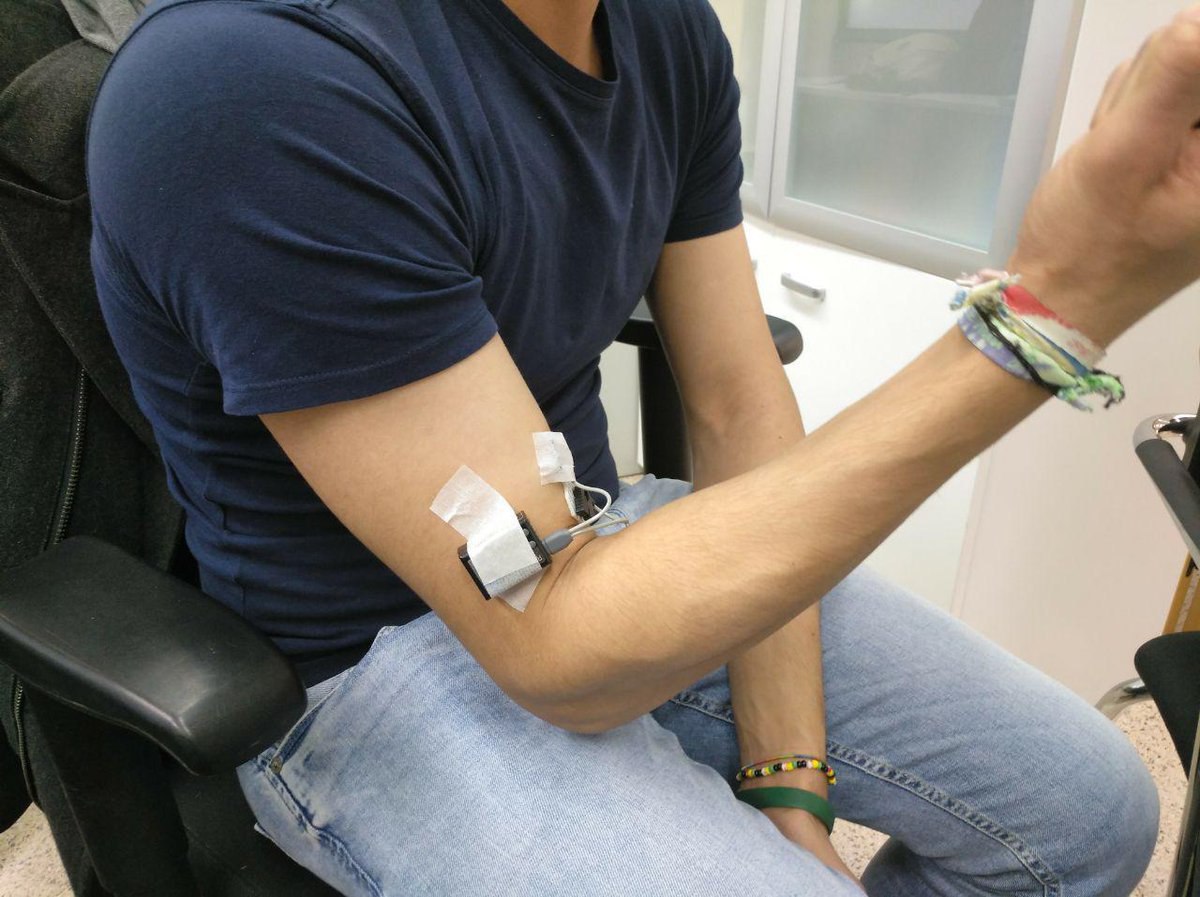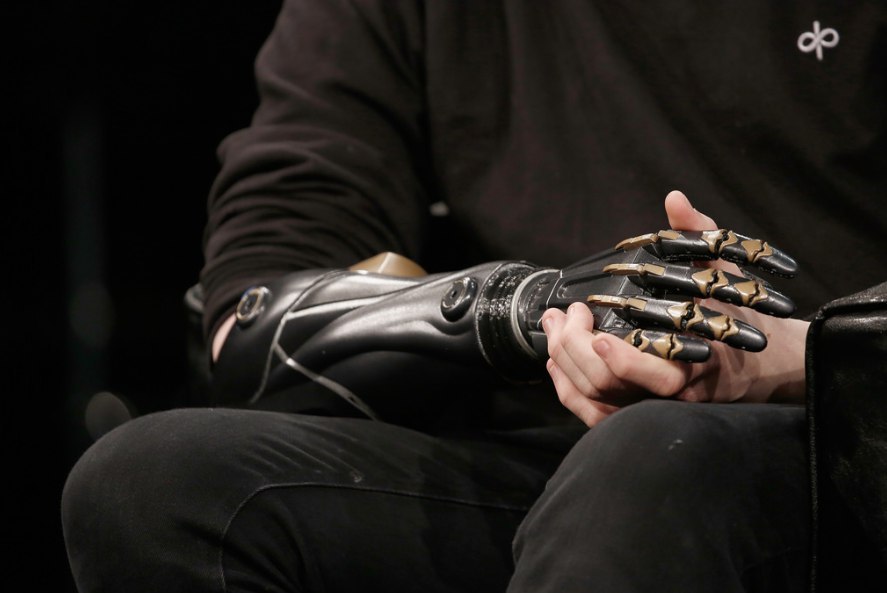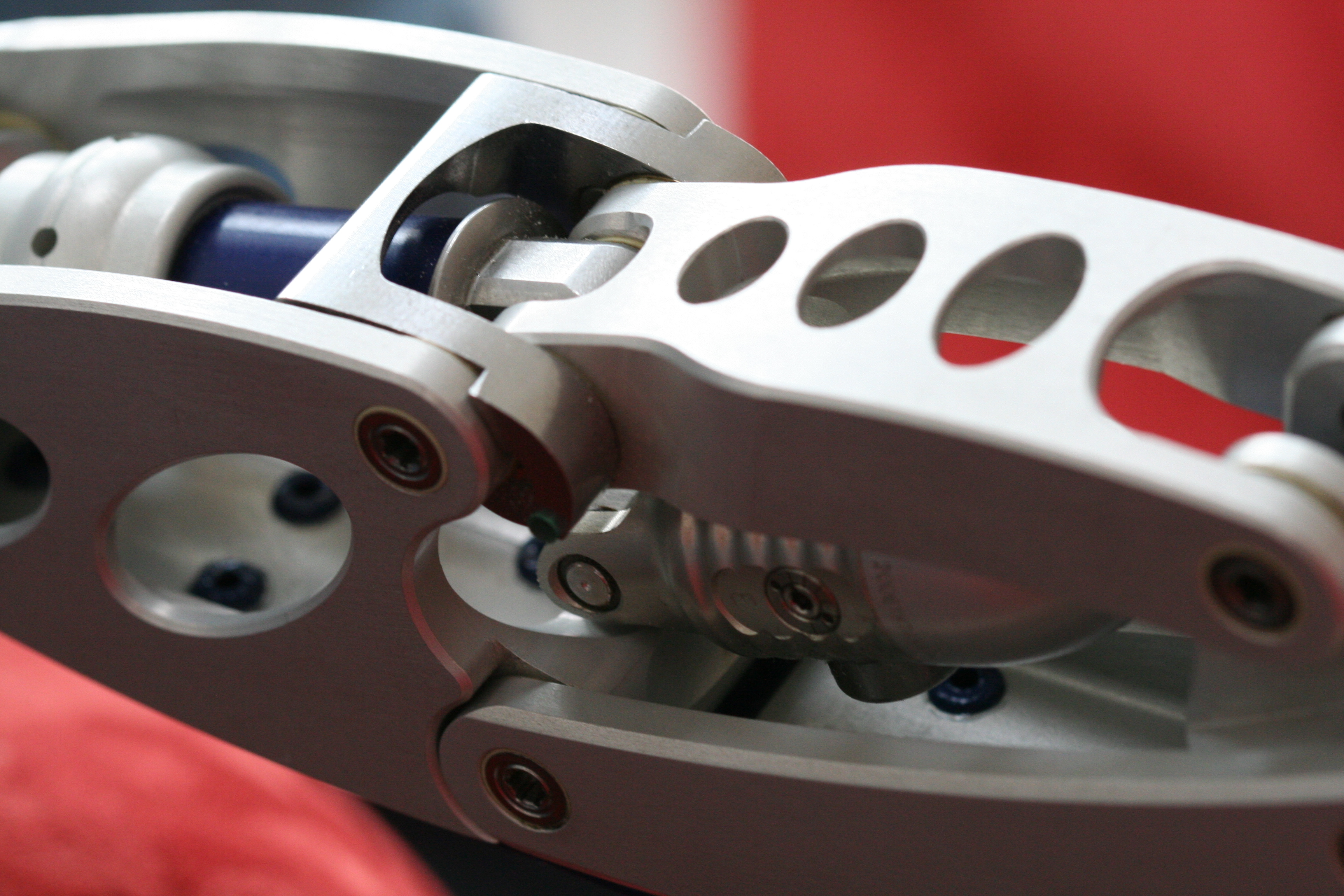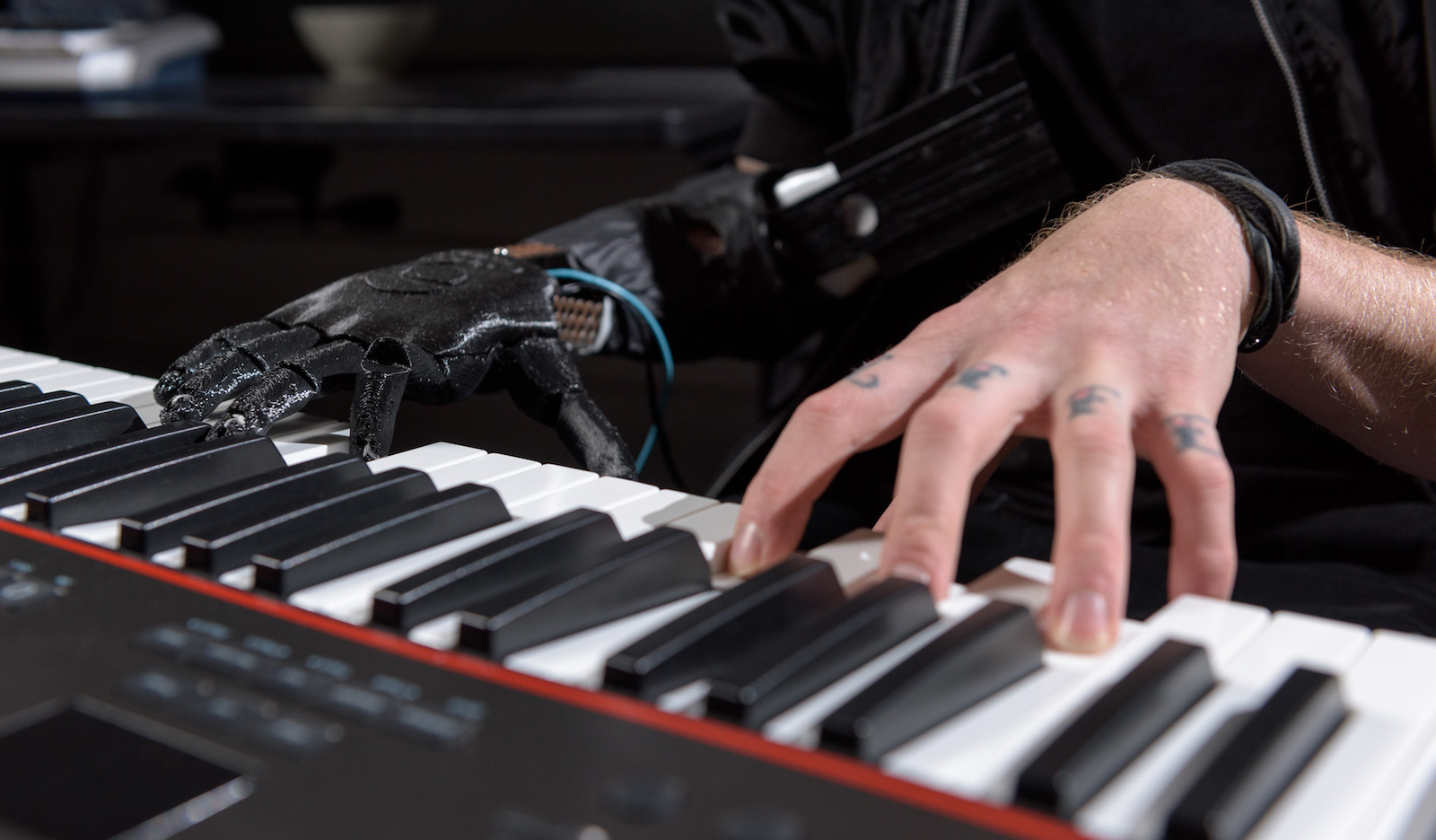Assistive Robotics
Assistive robots are now very present in both daily and clinical environments in order to improve the quality of life of the elderly and physically and/or cognitively disabled people. Our research aims at addressing the needs of these users by developing intelligent robotic systems in assistive and rehabilitation setups. Collaborative human-robot manipulation and physiological evaluation of task performance are two of the key factors in these developments. Our approach provides a broad view of the rehabilitation process by combining both the clinical and the engineering perspective.
Myoelectric Control
Myoelectric control enables human individuals with amputations to control external devices such as prosthetic hands or robots. Our research is mainly focused on establishing robust myocontrol schemes to control affordable devices. In this sense, several issues should be addressed, from the design and implementation of low-cost 3D-printed prosthetics to the inclusion of complementary enhancements such as vibrotactile feedback or virtual and augmented reality environments.
Motor Control Assessment
Neuromuscular pathways in motor control are yet to be fully explored. The application of novel non-invasive measurement techniques such as high-density surface electromyography (HD-EMG) can shed light of how the neuromuscular transmission behaves in task-dependant muscle contractions in the motor learning process, i.e., during rehabilitation of the loss motor function in patients with neurological injuries. Our main goal is to evaluate new metrics for the assessment of motor function based on HD-EMG and classical bipolar EMG measurements to serve as base for the enhancement of future neurorehabilitation procedures using robotic exoskeletons and orthoses.
Human Robotics Group - University of Alicante

Design and Control
of Robots
Advanced mechanical design of robotic devices and kinematic - dynamic control performance
Contact us
-
Human Robotics
UA Polytechnic School 3
Physics, Systems Engineering and Signal Theory Department
University of Alicante
Ctra San Vicente del Raspeig s/n
San vicente del Raspeig
03690 Alicante, Spain. -
(+34) 965 903 400 Ext. 1094
-
huro@ua.es
-
Week Days : 09:00 – 18:00
Saturday, Sunday : Holiday





